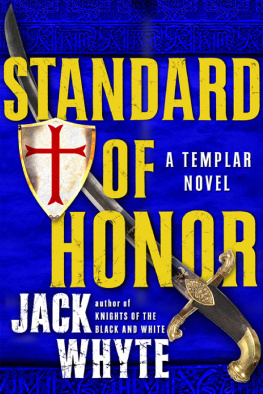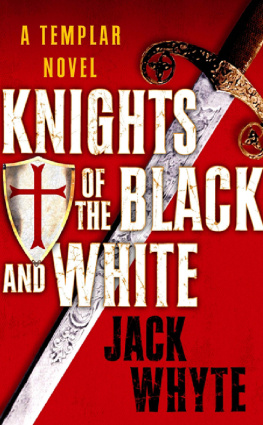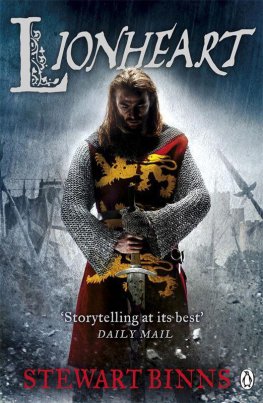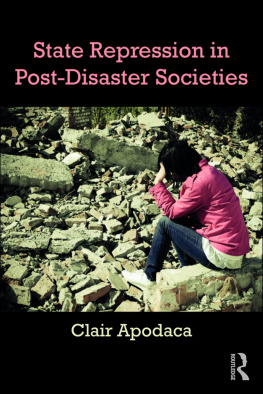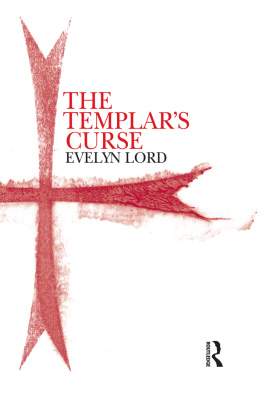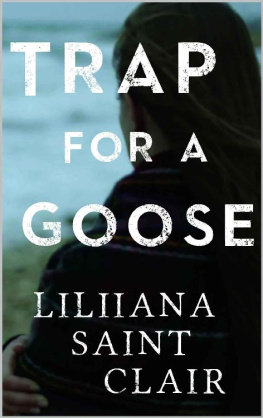
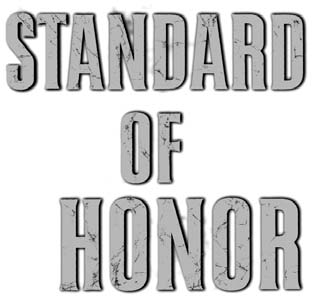
Also by Jack Whyte
A DREAM OF EAGLES
The Skystone
The Singing Sword
The Eagles Brood
The Saxon Shore
The Sorcerer, Volume I: The Fort at Rivers BendThe Sorcerer, Volume II: Metamorphosis
Uther
THE GOLDEN EAGLE
Clothar the Frank
The Eagle
THE TEMPLAR TRILOGY
Knights of the Black and White
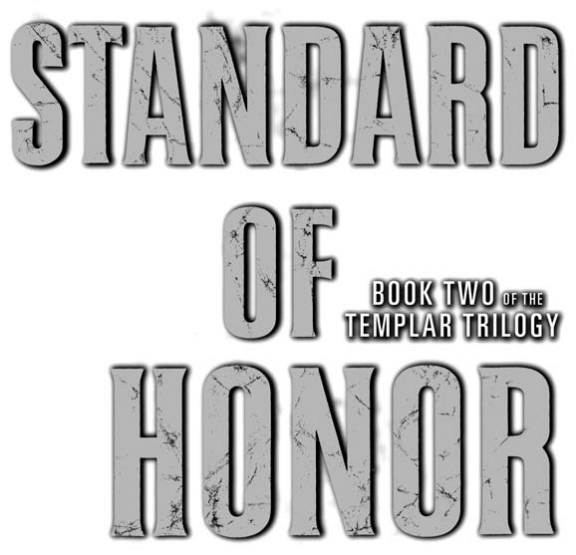
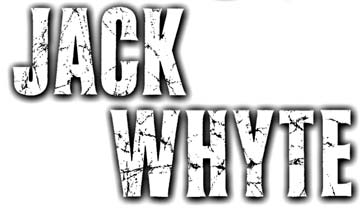
G . P. P U T NA M S S O N S
N E W YO R K

G. P. Putnams Sons
Publishers Since 1838
Published by the Penguin Group
Penguin Group (USA) Inc., 375 Hudson Street, New York, New York 10014, USA Penguin Group (Canada), 90 Eglinton Avenue East, Suite 700, Toronto, Ontario M4P 2Y3, Canada (a division of Pearson Penguin Canada Inc.) Penguin Books Ltd, 80 Strand, London WC2R 0RL, England
Penguin Ireland, 25 St Stephens Green, Dublin 2, Ireland (a division of Penguin Books Ltd) Penguin Group (Australia), 250 Camberwell Road, Camberwell, Victoria 3124, Australia (a division of Pearson Australia Group Pty Ltd) Penguin Books India Pvt Ltd, 11 Community Centre, Panchsheel Park, New Delhi110 017, India Penguin Group (NZ), 67 Apollo Drive, Rosedale, North Shore 0632, New Zealand (a division of Pearson New Zealand Ltd) Penguin Books (South Africa) (Pty) Ltd, 24 Sturdee Avenue, Rosebank, Johannesburg 2196, South Africa Penguin Books Ltd, Registered Offices: 80 Strand, London WC2R 0RL, England Copyright 2007 by Jack Whyte
All rights reserved. No part of this book may be reproduced, scanned, or distributed in any printed or electronic form without permission. Please do not participate in or encourage piracy of copyrighted materials in violation of the authors rights. Purchase only authorized editions.
Library of Congress Cataloging-in-Publication Data Whyte, Jack.
Standard of honor / Jack Whyte.
p.
cm.(Templar trilogy ; bk. 2)
ISBN: 1-4295-7673-1
1. TemplarsFiction. 2. CrusadesFiction. I. Title.
PR9199.3.W4589S73
2007
2007035757
813'.54dc22
This is a work of fiction. Names, characters, places, and incidents either are the product of the authors imagination or are used fictitiously, and any resemblance to actual persons, living or dead, businesses, companies, events, or locales is entirely coincidental.
While the author has made every effort to provide accurate telephone numbers and Internet addresses at the time of publication, neither the publisher nor the author assumes any responsibility for errors, or for changes that occur after publication. Further, the publisher does not have any control over and does not assume any responsibility for author or third-party websites or their content.
For my wife, Beverley,
Endlessly patient, long-suffering,
encouraging, supportive, and inspiring Every Frank feels that once we have reconquered the
[Syrian] coast, and the veil of their honor is torn off and destroyed, this country will slip from their grasp, and our hand will reach out towards their own countries.
Abu Shama, Arab historian, 12031267 a.d.
The soldier of Christ kills safely: he dies the more safely. He serves his own interest in dying, and Christs interests in killing!
St. Bernard of Clairvaux, 10901153 a.d.
Lincoln
Nottingham
Oxford London
Winchester
Winc
Canterbury
Southampton
R
ouen
Gisors
Paris
P
Clairvaux
v
Le Mans
Le Mans
Angers
Vzelay
Tours
To
Poitiers
P
Lusignan
Limoges
Limousin
Lim
Clermont
on
Angoulme
Avignon
Toulouse
Marseille
Ma
Pyrenees
The Plantagenet Empire
The Plantagenet Empire
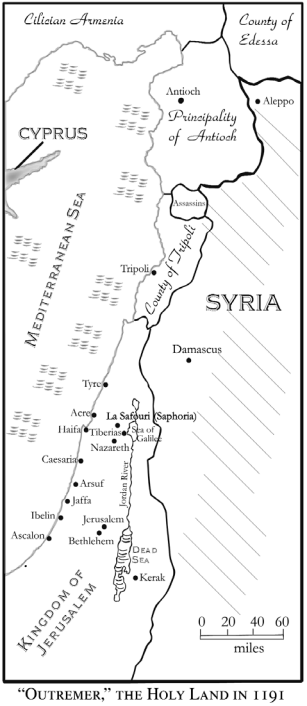
AUTHORS NOTE
Where is France? If anyone were to ask you that question casually, you would probably wonder at the ignorance that must obviously underlie it, because you, of course, know exactly where France is, having seen it a thousand times on maps of one kind or another, and it has been there forever, or at least since the last Ice Age came to an end, about ten thousand years ago.
So clearly, anyone with a lick of education ought to know where it is without having to ask. And yet, as a writer of historical fiction, I have been having trouble with that question ever since I began to deal with it, because I feel an obligation to maintain a standard of accuracy in the background to my stories, and yet, were I to stick faithfully to the historical sources and absolutes in writing about medieval France, Britain, and Europe, I would be bound to perplex most of my readers, whose simple wish, I believe, is to be amused, entertained, and, one hopes, even fascinated for a few hours while absorbing a reasonably accurate tale about what life was like in other, ancient times.
In writing my Arthurian novels, for example, I was forced to accept and then to demonstrate that the French knight Lancelot du Lac could not have been French in fifth-century, post-Roman Europe, and could not possibly have been called Lancelot du Lac (Lancelot of the Lake) because the country was still called Gaul in those days and the French language, the language of the Franks, was the primitive tongue of the migrating tribes who would one day, hundreds of years in the future, give their name to the territories they conquered.
I have had the same difficulty, although admittedly to a lesser degree, in writing this book, because although the country, or more xv
xvi
Authors Note
accurately the geographical territory known as France, existed by the twelfth century, it was a far cry from being the France we know today. The Capet family was the royal house of France, but its holdings were still relatively small, and the French king at the time of this story was Philip Augustus. Philips kingdom was centered upon Paris and extended westward, in a very narrow belt, to the English Channel, and it had only just begun to develop into the state it would become within the following hundred and fifty years. At the beginning of the twelfth century, it was still tiny, hemmed in by powerful duchies and counties like Burgundy, Anjou, Normandy, Poitou, Aquitaine, Flanders, Brittany, Gascony, and an area called the Vexin, which bordered Frances northern border and would soon be absorbed into the French kingdom. The people of all these territories spoke a common language that would become known as French, but only the people who lived in the actual kingdom of France called themselves Frenchmen. The others took great pride in being Angevins (from Anjou), Poitevins, Normans, Gascons, Bretons, and Burgundians. (Richard Plantagenet, the Duke of Aquitaine and Anjou, in many ways was wealthier and far more potent than the French king. Upon the death of his father, King Henry II, Richard would become King of England, the first of his name, the paladin known as Richard the Lionheart, and he would rule an empire built by his father and his mother, Eleanor of Aquitaine, that was far greater than the territories governed by King Philip.) To all of us today, they are all Frenchmen, but that was not so in their day, and the task of making that clear to modern readers, demonstrating that those differences existed and were crucially important at times to the people concerned, is the main reason why I often have to ask myself the question I began with here: Where is France?
Next page
